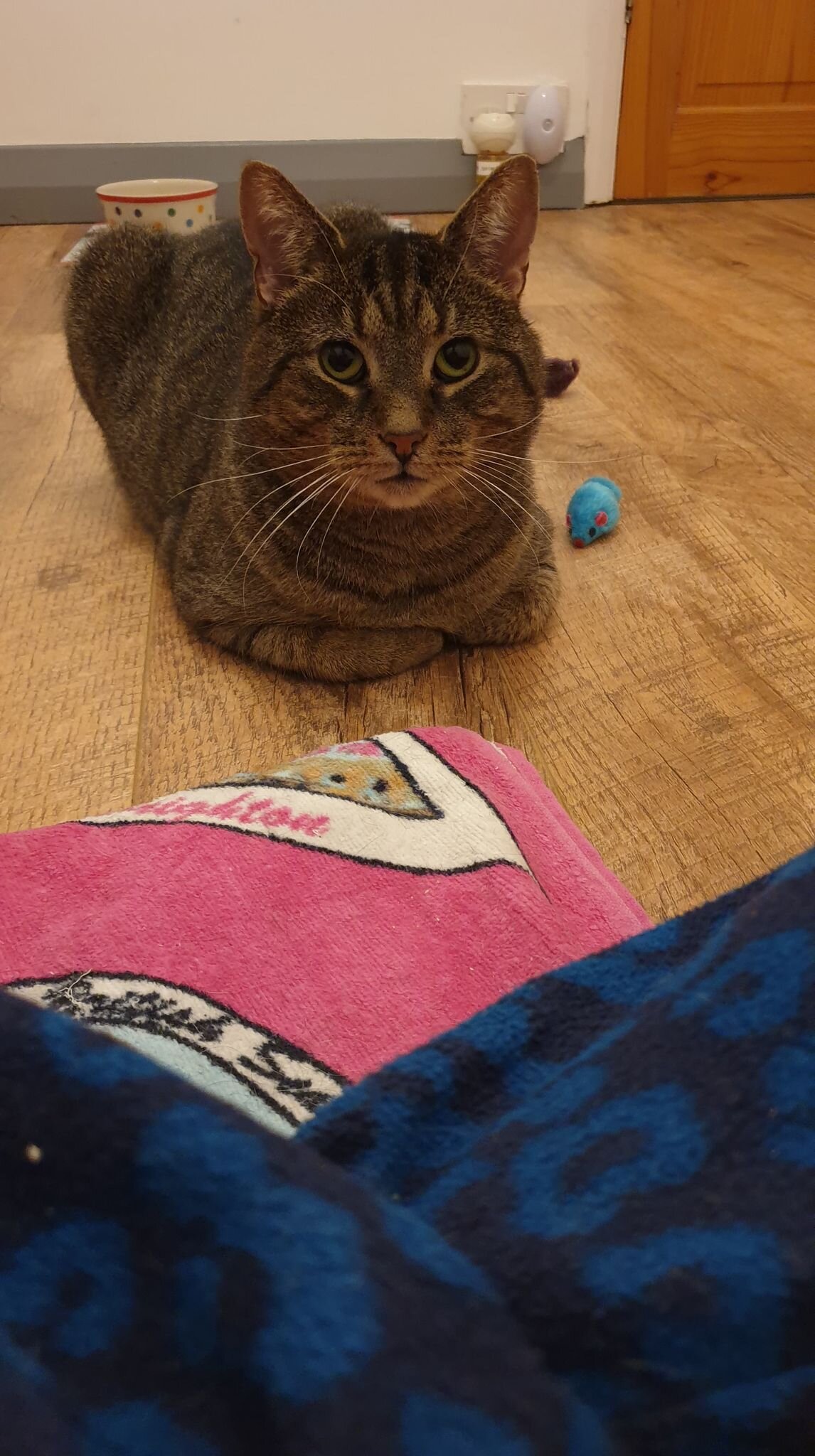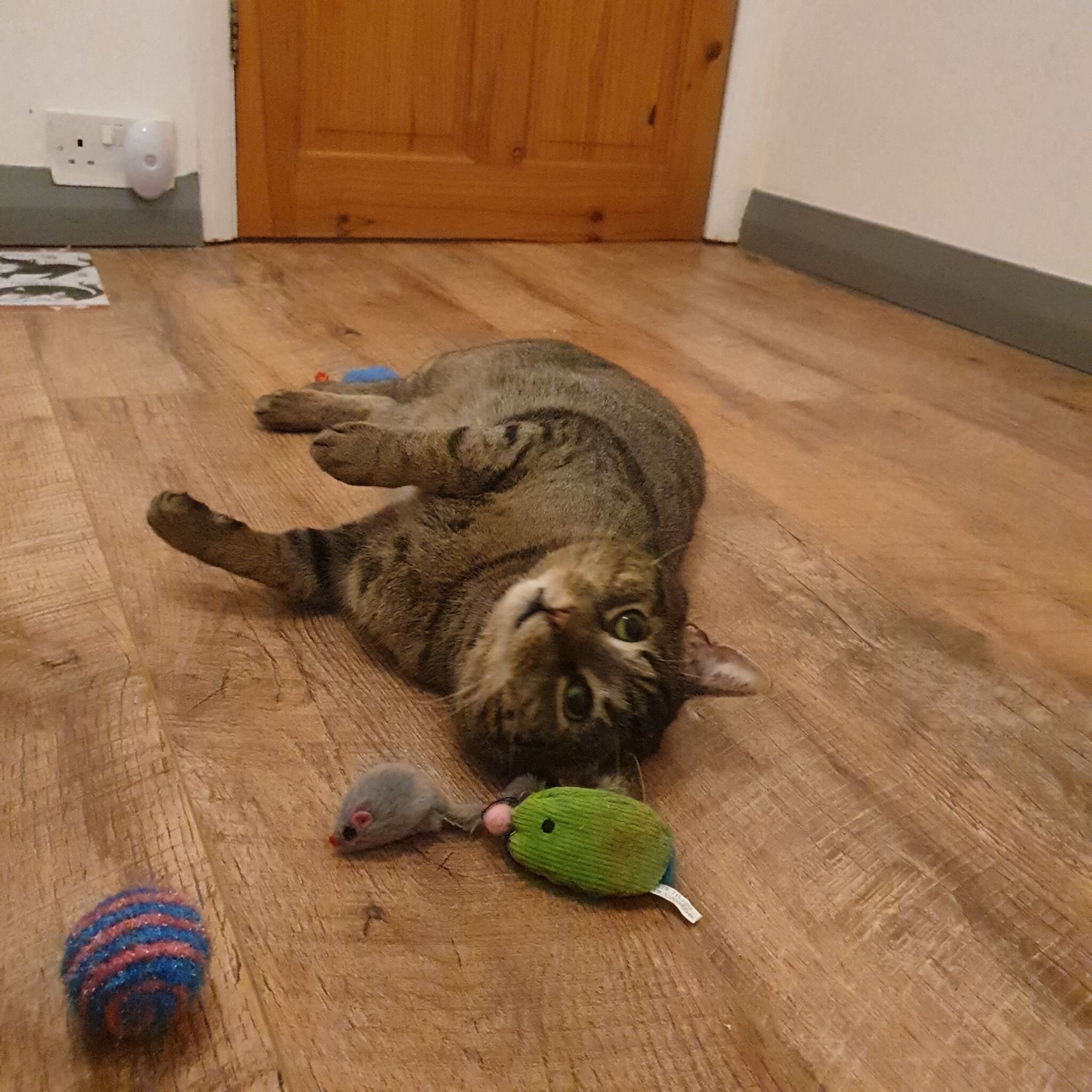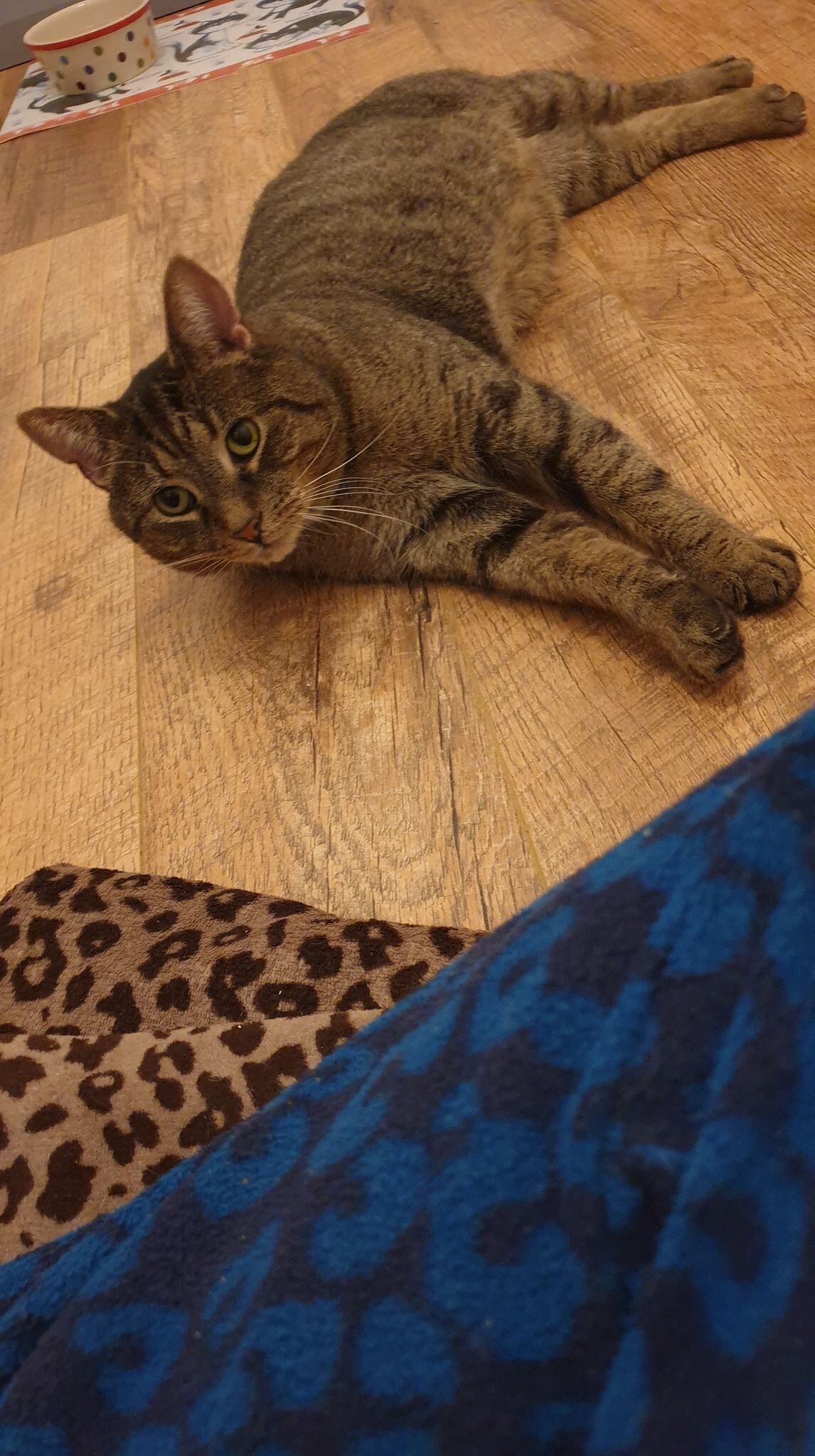Daggie's Story and the Plight of Feral & Semi-Feral Cats
A widespread lack of neutering in the UK has many unfortunate consequences for cats, among them the rampant transmission of FIV, accidental pregnancies, stray kittens, and shelters full to the brim with unwanted cats whilst more kittens continue to be born daily, either by accident or by design.
Perhaps one of the consequences not touched on quite so often however, is the existence of semi-feral and feral cats, who due to no fault of their own, are particularly tricky to find suitable, loving homes for. 'Ferals' are cats who have been born on the streets to stray mothers, and as a result, had no direct human contact in their early weeks of life. Missing this vital socialisation period means that their behaviour, as they develop, becomes more akin to a wild animal's than that of a domesticated pet. Unless intense rehabilitation efforts are made at an early age, they may never truly become used to direct touching and handling by humans, always preferring to keep some distance, and so they are often not the first choice for prospective adopters, looking for a typical, sociable cat.
This is relevant to the story of Daggie, a boy who entered the care of Catcuddles in November 2020, after a Dagenham resident noticed him in her neighbourhood, appearing unwell, with an audible cough. She brought him to our Cat Clinic, where he gained his name and was quickly diagnosed as FIV positive - a sadly predictable outcome for a previously unneutered male cat.
It was soon obvious that Daggie was potentially feral or semi-feral, as he was absolutely terrified of our volunteers, and eager to flee from any human contact. However, it is very tricky to assess when a cat is truly feral, as opposed to merely badly socialised or traumatised. Even for a stray cat who once had a home, a life spent surviving on the streets takes a toll, and many arrive scared and withdrawn, requiring months of rehabilitation. A cat abandoned or lost at a very young age may also not develop socially, and as a result exhibit behaviour similar to that of a feral. So you see, without knowing a cat's origins from birth, the assessment and rehabilitation of strays and ferals is a complex field.
And so our team could not say for certain that Daggie was feral, but from the offset, it was considered a strong possibility, and we knew that finding him a new home would therefore be challenging, and teaching him to enjoy human interaction like a 'normal' cat may not be possible.
However, Daggie was in for some well-deserved good luck. He struck up an unexpected bond with one particular volunteer, who felt brave enough to stroke, the hissing, frightened boy. To everyone's surprise, Daggie allowed himself to be stroked, and after a few weeks of this tentative interaction, the volunteer - whose partner is also part of the CC Team - decided to foster him.
Since then, Daggie has made some progress. In his first weeks, he mainly hid on the windowsill and would not eat or use a litter tray in his fosterer's presence. With their gentle encouragement however, he slowly began to eat a few metres away from his human companions, moving closer and closer to them as time wore on. In his foster home, he has become more reluctant to be stroked, but does allow himself to be touched whilst eating. He has deduced that humans = food and will quickly appear to stare pleadingly at his carers whenever he senses that a snack might be on the cards. Most crucially, he is happy in himself, and at ease around the people he has grown to trust.
This might not seem like much, but it is a tremendous improvement for a cat who was once trembling, hissing and spitting in any confined space with a person. In a loving forever home, with the full run of the house and a regular, stable routine, there is room for improvement still, though we can't predict how much. Daggie may transform after weeks, months or years in a happy home environment. Or he might never become a cuddly lap cat, always preferring to be at arm's-length. However, it is still possible to have a loving relationship with an animal on these terms, respecting their boundaries and interacting with them and showing affection for them in other ways. After all, adopting an overlooked cat is, in itself, an act of kindness and love.
Like like so many stray and feral cats, Daggie missed out on vital socialisation because of a situation that we humans have created, in which many thousands of cats are unneutered and homeless. But the wrong done to him by humans can also only be put right by humans - by loving, open-minded and understanding adopters.
Daggie is looking for a spacious home with access to a catio, cat-proofed garden or balcony via a cat flap. Catcuddles can provide advice on cat-proofing methods. Enquire about adopting him at https://bit.ly/3bkpq7j, or read his adoption profile at https://bit.ly/2OoTO7N





